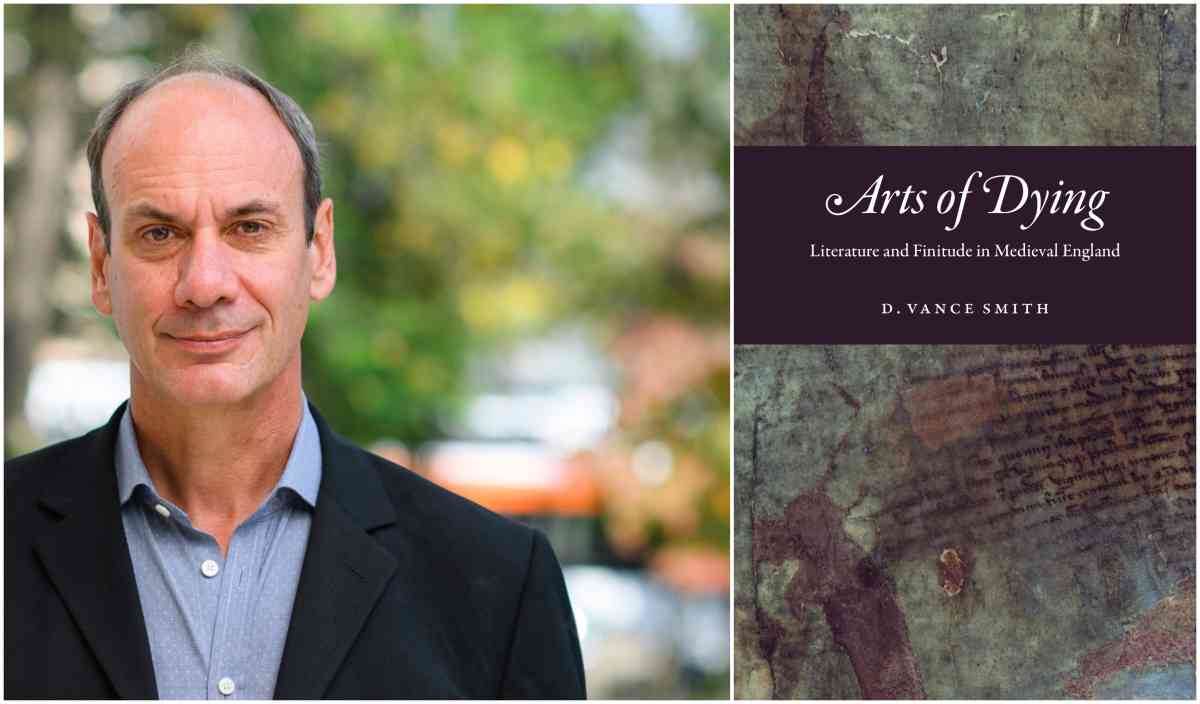In his new book, Arts of Dying: Literature and Finitude in Medieval England, the 2020-21 Humanities Council Old Dominion Professor D. Vance Smith (English) writes about the literary aftermath of the Black Death which, in light of the global COVID-19 pandemic, has turned out to be, unfortunately, much more topical than expected.
Smith explains that just as mental health professionals and clergy are writing about the impossibility of mourning during COVID-19, literature immediately after the Black Death acknowledged the immensity of the horror, but only indirectly and cryptically. It kept a kind of distance from that horror, and for almost 40 years writers tended to treat it at a distance. Literature had a post-traumatic shape: you can tell there is something profoundly wrong, but it is hidden beneath the surface. The images and tropes we associate with medieval morbidity—the dance macabre, the transi-tomb—only begin to emerge more than 40 years later, as if the event of massive death had to be distant enough to begin to be represented.
The book talks about how theories of mourning in the twentieth century (mainly those of Freud, Blanchot, and Gillian Rose in particular) have left us better off, in some ways, than people in the fourteenth century–with the notable exception, of course, for the bulk of the population in the West, of the consolation of eternity. We are better equipped to deal with virtual spaces, with absence in abstract ways, with melancholy as a permanent condition. Yet we still yearn for a way to mark death, to inscribe our loss in a physical space, and to acknowledge that our present experience of loss involves nothing less than our former way of being in the world.
Arts of Dying: Literature and Finitude in Medieval England is published by The University of Chicago Press.
Earlier this Spring, D. Vance Smith delivered the final talk in the Old Dominion Public Lecture series on the history of colonialism and wildlife conservation entitled “Blood Flowers: Recolonizations.” Watch the video.
















